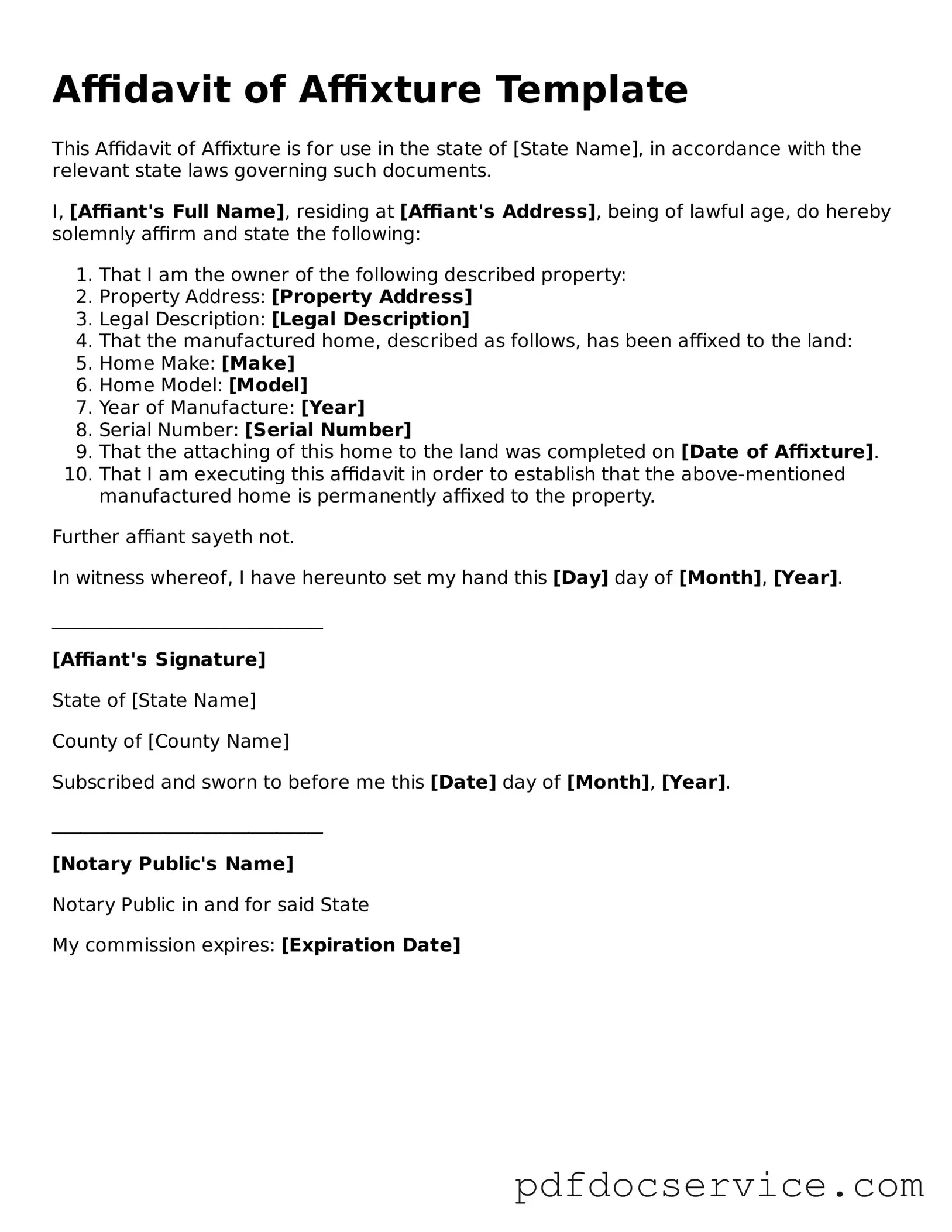Blank Affidavit of Affixture Form
The Affidavit of Affixture is a legal document used to declare that a manufactured home has been permanently affixed to a piece of real property. This form is essential for homeowners seeking to establish the home as part of the real estate, thereby facilitating property transactions and securing financing. Understanding this document can help ensure compliance with local laws and regulations regarding property ownership.
Open Affidavit of Affixture Editor

Blank Affidavit of Affixture Form
Open Affidavit of Affixture Editor

Open Affidavit of Affixture Editor
or
Get Affidavit of Affixture PDF
Finish the form now and be done
Finish Affidavit of Affixture online using simple edit, save, and download steps.